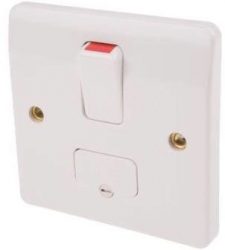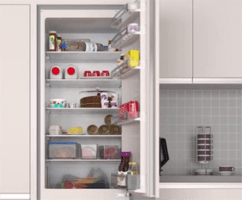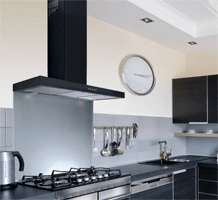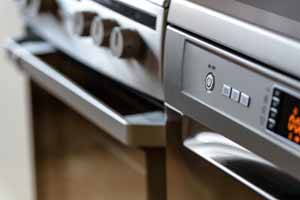
Specialist providers of Fixed Appliance Testing services
Providing a Fixed Appliance Testing service for North East businesses, to help you maintain compliance through safe electrical equipment.
Fixed Appliances are those that have had the plug removed, and been hard wired to the mains. For years these have been missed by electricians and PAT testers alike, each believing the other should be doing the test. Now to bring fixed appliances inline with EICRs and PATs we are able to offer this service to our clients.
Fixed Appliances need regular checks just like their plug counterparts, but as they are usually secured to the building there is less risk associated so usually only need an inspection every 5 years, although there are exceptions.
For as long as anyone can remember electrical equipment fitted with a plug has been PAT tested, and mains wiring has had periodic checks, and specialist equipment such as air conditioning, escalators etc have been maintained by a specialist company but other electrical equipment that was bought with a plug on then hard wired to the mains has not been checked by anyone.
The PAT tester didn’t check it because he’s not qualified to work on the mains, and can’t test it without unwiring it, and the electrician doesn’t test it because appliances are not part of the periodic test (EICR).
So they never got checked, which is wrong, especially as they’re often a cause of electrical fires.
So in 2012 guidance was updated to include these appliances in In-Service Inspection and Testing of Electrical Equipment (ISITEE), to make sure they got checked by someone. This started arguments between electricians and PAT testers about who was going to do it, and it’s taken until the 2020’s for an answer to be confirmed – fixed appliances must be tested by someone competent to do so. No help whatsoever!
From your point of view, you need to get either your PAT tester or your electrician to perform periodic inspections of the fixed equipment; a full test when the appliance is unwired to make sure it is still ok should be performed at least inline with the EICR, so is best done by the electrician, whilst a visual inspection and earth continuity test can be done when the PAT is carried out. The PAT tester can do his bit without unwiring the item, so as not to potentially cause issues by wiring it back up incorrectly, and to minimise disruption to you, because to unwire it means the power has to be turned off.
There are rare cases of PAT testers being trained to work on mains power, and able to isolate the appliance in order to test it in full, and of electricians prepared to PAT test, but these are very rare. Luckily for you, you have found one of those rare cases. We can do a full inspection and test.
What is Fixed Appliance Testing?
Fixed appliances are hard wired to the socket circuit of the mains, usually via a fused spur unit. To be tested they need to be unwired from the mains, so the mains power needs isolating (turning off), to make it safe to work on. Then the appliance wiring is unwired from the spur, and a circuit created to test the appliance in the same way we would run an PAT test on an appliance fitted with a plug. This tests for earth continuity and insulation resistance and is the required full test.
This invariably needs doing out of hours, because you can’t use the sockets whilst they have no power, and is quite a costly service (day rates). It doesn’t need doing very often, because once we have established the wiring is correct, assuming nobody incompetent doesn’t access it, that is not going to change, and should be ok for another 3-5 years.
Because of issues like turning off the power, and unwiring it, it is best to get this done when an electrician inspects all your mains wiring when performing an Electrical Installation Condition Report (EICR); which we can do for you.

There is an easier option that doesn’t involve turning off the power and will cover you although not indefinitely and that is what the PAT tester can do whilst doing other equipment.
Without accessing the innards of the spur we can run a test between the spur faceplate screw and the appliance ‘earth’ connection, which checks for earth continuity, which is making sure earth protection is present. We’ll also visually inspect the visual components of the appliance at the same time. This can be done at the time of the PAT test, for the same price as the PAT Test, so no higher prices.
If you have fixed appliances in your workplace, such as hairdryers in hotels, toilet air hand driers, water boilers, etc. then you need to make sure you are getting these checked regularly. When we do your PAT tests we automatically check appliances that would have been supplied with a plug, that have been hard wired, and appliances that have been integrated so the plug is no longer accessible.
What appliances need fixed appliance testing?
Fixed appliance testing refers to any electrical appliance fitted to the mains directly, via a fused spur unit. As PAT Testers we will check all appliances that would be supplied with a plug and flex.
Appliances we check include (but not limited to):
- Fitted hair driers in hotels
- Towel rails
- Hand driers in toilets
- Water boilers in kitchens
- Appliances that are integrated so the plug is not accessible
Some fixed equipment should only be checked by specialist engineers, such as escalators, lifts, air conditioning units, etc.

Why do you need Fixed Appliances Testing?
Whilst you don’t need to get appliance testing done by law, you are legally required to ensure your electrical equipment is safe to continue being used; and the only recognised way of doing this is to get it PAT tested.
The test will check your appliance is safe – any faults will be repaired; if it can’t be repaired it’ll fail and recommendations will be made for what to do next.
The PAT Testing Certificate Report you are provided with details the tests carried out and results obtained – you need that if there is ever an accident or fire. You’ll also need it if you get a visit from the fire officer or a risk assessor. You need it if you get inspected by a governing body such as the CQC or Ofsted, for example.
You must ensure all electrical equipment is safe, including appliances with a plug, and those that have been ‘hard wired’; although the rules are different. We’ll guide you if it applies.
You are responsible for ensuring electrical equipment you use at work or in another workplace is safe – so get it checked – Protect yourself.


